Whether you are renting a vehicle for a quick trip or participating in peer-to-peer car sharing, understanding your rights and insurance options is crucial. Car sharing has become a popular alternative to traditional car rental or rideshare services.
In a car-sharing arrangement, vehicle owners list their cars on a platform or app, specifying availability, rental rates, and other terms. Renters can then browse available vehicles, select one that meets their needs, and complete the rental process online. The rental typically includes insurance coverage provided by the platform.
This model offers both owners and renters flexibility and convenience but also introduces unique considerations, especially when accidents occur.
In the event of an accident, personal auto insurance policies typically extend to rental cars. This means that the liability, collision, and comprehensive coverage you have for your personal vehicle may also apply to a rental car.
The amount of coverage can vary based on the specifics of your policy and the insurer. Before renting a car, it would be prudent to check with your insurance provider to confirm the extent of your coverage.
Key areas to review in your policy include:
Car-sharing services often provide insurance coverage, but the extent of coverage can vary. Basic coverage may not always be sufficient to cover all damages or injuries sustained in a car accident.
Car-sharing companies typically offer various types of insurance options for an additional cost. These options can include loss damage waiver, collision damage waiver, personal accident insurance, supplemental liability coverage, and personal effects coverage.
Let’s explore these options.
If you are involved in a car-sharing accident, a loss damage waiver (LDW) can be particularly beneficial. An LDW is a contractual agreement between the renter and the rental car company that relieves the renter from financial responsibility under certain terms and conditions.
An LDW typically covers collision damage, which includes damage to the rental vehicle due to a collision, regardless of fault. It also covers theft in case of the theft of the rental vehicle.
While an LDW provides valuable protection, it does not cover injuries or property damage. Additionally, some LDW policies may have deductibles, which are the amount you must pay before the coverage kicks in.
Personal accident insurance is an optional coverage that provides financial protection for medical expenses for certain types of injuries and accidental death benefits to the driver and passengers in a rental or car-sharing vehicle.
In the unfortunate event of an accident, medical expenses can quickly add up. PAI helps cover these costs for both the driver and passengers, regardless of who is at fault.
This coverage typically includes:
If a fatal accident occurs, PAI provides death benefits to the beneficiaries of the deceased driver or passengers. This financial support can help cover funeral expenses and provide some financial stability during a difficult time.
One of the key advantages of PAI is that it often operates on a no-fault basis. This can be particularly beneficial in car-sharing scenarios where fault determination might be complex and time-consuming.
If you already have health insurance or other forms of accident insurance, PAI can complement these policies. It can cover out-of-pocket expenses that other policies might not fully cover, such as deductibles, copayments, or services that fall outside the scope of regular health insurance. However, if you already have a personal injury protection policy, you likely do not need PAI.
Supplemental liability protection is additional insurance that provides coverage beyond the standard liability limits of the car-sharing service or the driver’s personal auto insurance. This coverage can protect you against claims made by third parties for damage to their vehicles or other property damage resulting from an accident.
Car-sharing services typically offer basic liability coverage, which may not be sufficient in the event of a severe accident. SLC can bridge this gap by offering higher limits of liability, typically between $300,000 to $1 million. This ensures that victims are adequately compensated for their injuries and damages.
Personal effects insurance can cover the cost of portable personal items that may be stolen from or damaged in the rental vehicle, such as:
Personal effects insurance typically comes with limits on the total amount of coverage and may have specific exclusions. There might be a cap on the total amount you can claim for personal items. This limit varies by policy and provider.
Certain high-value items, like expensive jewelry or professional equipment, may not be covered. Additionally, items left in plain sight may not be covered if the theft is considered to have been preventable.
Homeowner’s or renters insurance might cover personal belongings stolen from a rental car, which can reduce your out-of-pocket expenses if theft occurs. Additionally, umbrella insurance policies could provide extra liability coverage that extends to rental cars.
The term “collision damage waiver” is often used interchangeably with loss damage waiver. However, there is a difference between the two. A CDW only covers damage resulting from a collision, while an LDW covers damage resulting from both collisions and theft.
Since these terms are often used interchangeably, you should carefully review the conditions of the insurance policy provided by the car-sharing service to understand what is covered and what is not.
Certain credit cards offer rental car insurance as a cardholder benefit. If you use such a credit card to pay for your rental, you might be covered for damages to the rental car.
Credit card auto insurance is often secondary, meaning it kicks in after your personal auto insurance benefits have been exhausted – but some cards offer primary coverage. Review the terms and conditions of your credit card agreement or contact your card issuer to understand the specifics.
Rental car insurance policies often come with conditions that might limit coverage. Additionally, some policies exclude coverage for certain types of damages, such as damage to tires, windshields, or the interior of the car.
Even when coverage applies, there may be deductibles and limits to what the insurance will pay. For example, a loss damage waiver might cover the cost of repairing the vehicle, but you could still be responsible for a deductible or any costs that exceed the policy's limits.
If you are involved in an accident with another vehicle while using a car-sharing service, the rental insurance might cover the damages to the rental car, but it might not cover the damages to the other vehicle or injuries to its occupants. In such cases, the supplemental liability coverage would come into play, but it too can have limitations and exclusions.
To avoid potential coverage gaps, consider purchasing additional coverage options or verifying whether your personal auto insurance or credit card provides additional protection for rental or car-sharing vehicles. This extra layer of security can offer peace of mind and financial protection in case of an accident.
After being hurt in a car-sharing accident, it’s natural to be concerned about your rights and the next steps to take. Navigating the legal and insurance complexities can be overwhelming, especially when you are focused on recovering from your injuries.
If you have sustained injuries, these often lead to medical bills, recovery periods, and – depending on the severity – an impacted quality of life. An attorney can help ensure you receive the compensation you deserve.
When there is a dispute over who is at fault for the accident, an attorney can be especially invaluable. He or she can gather evidence, interview witnesses, and build a strong case to establish liability.
If you encounter difficulties with the car-sharing service’s insurance provider or your own insurance company, an attorney can handle the communications and negotiations to ensure that your claim is processed fairly. If a settlement cannot be reached or some other reason makes it necessary to pursue a personal injury lawsuit, your attorney can take your case to court.
Yes, hiring a personal injury attorney provides numerous benefits. With the right help, you can be assured that your rights are protected.
After you have been injured in a car-sharing accident, don't wait to get the support you need. The sooner you act, the better your chances of securing the compensation you deserve.
At Kiley Law Group, we prioritize you by offering compassionate guidance and dedicated advocacy. During your free consultation, one of our personal injury attorneys will discuss the details of your case and help you explore your legal options.
Let us handle the nuances of the legal system so you can focus on your recovery. Your health, financial well-being, and peace of mind are too important to leave to chance, so take your first step toward justice and recovery now. Call us today at (978) 965-3228 to schedule a free consultation – or fill out our online contact form.

